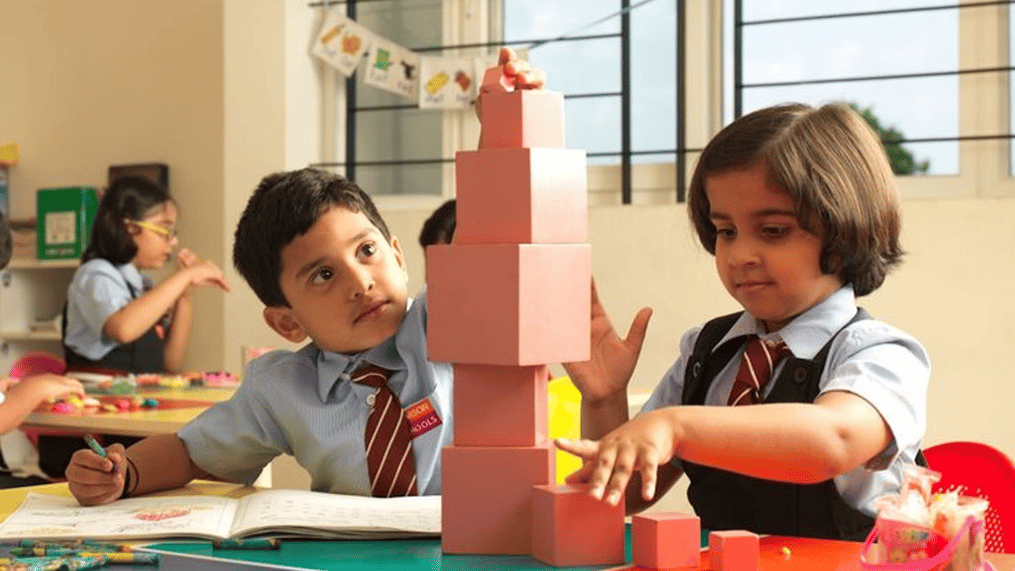- Communication
- Teamwork
- Problem-solving
- Leadership
- Time management
- Providing a Mental Break
- Promoting Physical Exercise
- Building Social Support Networks
- Developing Life Skills
- Offering a Balanced Approach
- Playing Sports
- Learning Music
- Learning Gardening
- Practicing Public Speaking Activities
Introduction

Participating in extra-curricular activities is a great way for kids to release stress and relax. Students who engage in activities outside regular studies tend to have better grades, higher exam scores, and positive educational experiences. Taking part in these activities gives kids a mental break, helping in to return to studying feeling refreshed and ready to succeed. Additionally, extracurricular activities can help with stress management among kids.
Involvement in non-academic activities can also boost kids' mental and physical health. These activities help reduce stress, improve mood, and increase energy levels. Students who participate in extra-curricular activities experience a reduction in feelings of anxiety and depression.
By joining clubs, sports, or other interests, kids not only improve their academic performance but also improve their overall well-being. Extra-curricular activities provide a balance between work and play, making the educational journey more enjoyable and fulfilling.
What Are Extra-Curricular Activities?

Co-curricular activities are things kids do outside of regular classes, like playing sports, joining clubs, volunteering, or any other activity.
Being in school is not just about studying and getting good marks. It is also about trying new things and learning from them. Trying out new activities might seem scary, but remember, the main goal of being a student is to learn. Whether kids love sports, music, helping others, or just want to try something different, there is an activity out there for kids to enjoy.
What Skills Do Kids Learn from Extra-Curricular Activities?
Here are some of the top benefits of extracurricular activities for kids and what new skills a child learns during this process.
Communication
Communication is all about being able to express thoughts clearly and understand what others are saying. Kids learn to share ideas effectively and listen carefully to what others have to say. This skill is crucial not only in work settings but also in everyday life.
Teamwork
Teamwork means working together with other people to achieve a common goal. It involves sharing responsibilities, supporting each other, and respecting everyone's contributions.
Problem-solving
Problem-solving is the ability to find solutions to challenges or obstacles that arise. It requires critical thinking, creativity, and resourcefulness. When faced with a problem, kids analyze the situation, identify possible solutions, and determine the best course of action. Developing strong problem-solving skills helps kids overcome obstacles both in academics and in life.
Leadership
Leadership involves taking charge and guiding a group toward a common objective. A good leader inspires and motivates others, delegates tasks effectively, and leads by example.
Time management
Time management is the practice of organizing and prioritizing tasks to make the most efficient use. It involves setting goals, creating schedules, and allocating resources effectively. With good time management skills, kids can balance academic workload, extracurricular activities, and personal commitments while meeting deadlines and achieving objectives.
How Extracurricular Activities Help in Managing Exam Stress

Providing a Mental Break
Participating in extracurricular activities offers students a much-needed break from the intensity of exam preparation. This mental break allows kids to step away from studies to relax and rejuvenate. Whether it is through sports, arts, or other interests, engaging in these activities provides a refreshing change of pace, helping students return to study with renewed focus and motivation.
Promoting Physical Exercise
Many extracurricular activities involve physical exercise, which has been proven to reduce stress and improve mood. Physical activity stimulates the release of endorphins, neurotransmitters in the brain that act as natural stress relievers and mood lifters. By participating in sports or other active pursuits, students can release tension and anxiety associated with exams, promoting a sense of well-being and relaxation.
Building Social Support Networks
Extracurricular activities often provide opportunities for students to build friendships and connections with others who share similar interests. These social support networks play a crucial role in helping students cope with exam stress. By surrounding themselves with supportive individuals, students can seek encouragement, advice, and camaraderie during challenging times. The sense of belonging and community fostered by extracurricular involvement can provide emotional resilience and alleviate feelings of isolation or overwhelm.
Developing Life Skills
Engaging in extracurricular activities allows students to develop essential life skills that are beneficial for managing exam stress. Activities like joining clubs, organizing events, or participating in team sports require skills like time management and organization. By working on these skills apart from academics' students gain valuable tools for effectively managing time and responsibilities.
Offering a Balanced Approach
By incorporating extracurricular activities into kids' schedules, students adopt a balanced approach to managing exam stress. While academic studies remain a priority, extracurricular pursuits provide a healthy outlet for relaxation, socialization, and personal growth. This balanced approach helps students maintain overall well-being during the exam season.
List of Extracurricular Activities for Students
Here is a list of extracurricular activities for kids to learn new skills and enhance cognitive development.
1. Playing Sports
Playing sports may not only help in keeping a child fit but also may help in developing many soft skills. This includes communication, leadership, managing time and so much more. It is one of the best extracurricular activities for kids who want to freshen up their minds and mingle with other kids of their age group while exchanging tips and ideas.
2. Learning Music
Music is a vocational art that may help in developing a sense of rhythm and make a child more aware of their surroundings. Kids may also become more proficient with their language.
3. Learning Gardening
Gardening allows children to explore their natural environment and understand how all the elements of nature function in a symbiotic relationship. It may also help in enhancing a child’s interest in science and ecology.
4. Practicing Public Speaking Activities
Public speaking activities may involve indulging in declamations, speeches, story-telling activities, and many more. This may help in developing a sense of confidence among kids and may make them more effective communicators.
Conclusion

Participating in extracurricular activities for kids is more than just fun. It is an important part of a child's development. Additionally, such extracurricular activities may reduce stress. Not only do these activities provide a break from studying, but they also improve academic performance and mental health. By improving communication, teamwork, problem-solving, and other essential skills, kids are better equipped to succeed in school and beyond. Hence, extracurricular activities for students offer a well-rounded approach to education, making the learning journey more enjoyable and fulfilling for kids.
Tarishi Shrivastava is a young writer who has covered a range of topics on children's health, including nutrition, fitness, sleep, and parent-child bonding. With a keen interest in simplifying wellness for parents, she brings a practical and engaging approach to her writing. Beyond work, she enjoys exploring new ideas, staying curious, and creating meaningful content.
The views expressed are that of the expert alone.
The information provided in this content is for informational purposes only and should not be considered a substitute for professional medical advice, diagnosis, or treatment. Always seek the advice of your physician or another qualified healthcare provider before making any significant changes to your diet, exercise, or medication routines.
References
https://classplusapp.com/growth/importance-of-extra-curricular-activities/?session=ondemand
https://www.dpsgs.org/sushant-lok/blog/importance-extracurricular-activities-students
https://playwayacademy.com/blogs/the-benefits-of-extracurricular-activities-for-students










